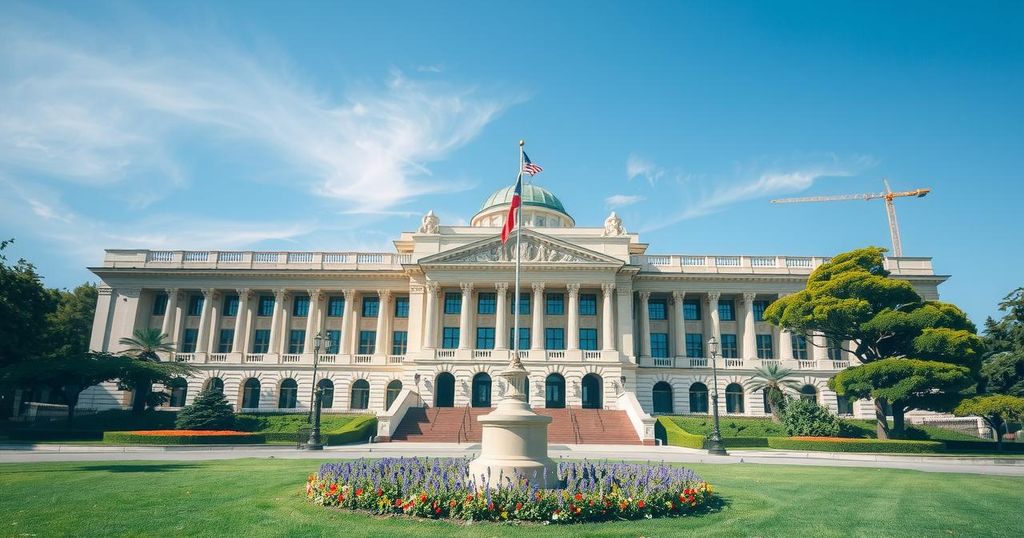Comoros’ ruling party, led by President Azali Assoumani, gained 28 of 33 parliamentary seats, with opposition parties largely boycotting the elections. Assoumani’s son won his seat with 85% of the vote, as two seats will advance to a run-off election. The electoral integrity has been challenged by opposition claims, which the government dismisses as exaggerated.
The ruling party of Comoros, led by President Azali Assoumani, has secured a significant majority, winning 28 out of 33 parliamentary seats. This victory includes a seat won by Assoumani’s son, Nour El Fath Azali, who received 85% of the votes in his constituency. Two seats remain pending, with a run-off election scheduled for February 16, as announced by the Independent National Electoral Commission.
The Convention for the Renewal of the Comoros, the ruling party, also governs all three islands constituting the nation. In the recent elections, many opposition parties chose to boycott, leading to a limited dissenting voice within the parliament. Any claims of electoral misconduct have been dismissed by Minister of the Interior Fakridine Mahamoud, who described assertions by the United Opposition coalition as exaggerated and unfounded.
As recent reports indicate, Comoros has approximately 338,940 registered voters, although the authorities have not disclosed voter turnout figures. Nour El Fath Azali, who has been appointed as the government’s secretary general, is now positioned similarly to a prime minister in Comoros’ political structure. The recent elections have been met with mixed reviews, with some opposition members calling it the “worst electoral farce” since the nation’s independence.
The situation in Comoros necessitates a brief overview of its political landscape. The ruling party, Convention for the Renewal of the Comoros, has maintained control over both the parliament and the governorships of the islands since President Azali Assoumani came to power. With a populace largely opting for boycotts during the elections, the opposition’s influence seems diminished. This election cycle has also highlighted current tensions regarding electoral integrity and representation in governance.
In summary, the recent parliamentary elections in Comoros have resulted in a substantial victory for the ruling party, solidifying President Azali Assoumani’s political dominance. The significant majority acquired may lead to continued challenges for the opposition, particularly in light of their decision to boycott the elections. The electoral process has drawn criticism related to fairness, indicating potential areas for future contention in Comoros’ democratic evolution.
Original Source: www.barrons.com






